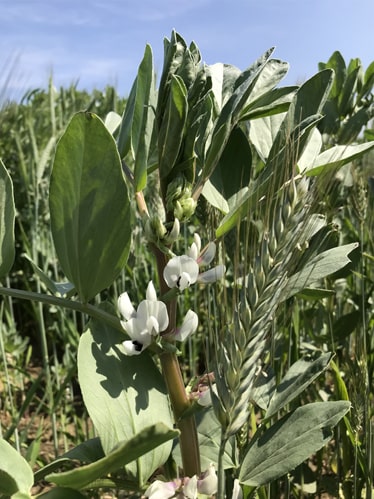
Twenty one European partners are joining forces to enhance the growing area of legumes in Europe. The LEGENDARY project (2024-2028) will provide ready-to-use indicators that will better enable farmers and advisors to evaluate and appreciate the benefits of growing legumes.
The project partners will achieve this by developing tools and methods going considerably beyond the state-of-the-art to quantify Ecosystem Services of perennial and annual legumes in different agro-climatic zones.
From May 20 to 22, 2025, the 2nd International Symposium on Agrobiodiversity along the Value Chain took place at IRTA (Spain), co-organised by the LEGENDARY and CROPDIVA projects. The event brought together researchers and stakeholders to explore the role of agrobiodiversity in food systems.
The symposium opened with keynote talks by Christian Schöb, Roberto Papa and Teresa Borelli:
- • Christian Schöb (University Rey Juan Carlos, Spain) presented on the ecological mechanisms underlying the benefits of diversity in annual crop systems. His key messages: (1) mixtures outperform monocultures, (2) multiple ecological mechanisms drive overyielding, (3) overyielding increases with ecotype mixtures, and (4) coadaptation plays a role.
- • Teresa Borelli (Alliance Bioversity-CIAT, Italy) focused on neglected and underutilized species (NUS), emphasizing their importance in the face of climate change, biodiversity loss and food insecurity—especially in vulnerable regions. NUS are nutritious, accessible, and culturally relevant, and can strengthen climate-resilient food systems.
- • Roberto Papa (Università Politecnica delle Marche, Italy) presented findings from the EU INCREASE project, highlighting the value of citizen science in legume research. Citizen observations supported phenotyping efforts and the development of genetic markers for traits such as earliness and stress tolerance.
Throughout the three days, participants engaged in oral and poster sessions on genetics, cropping systems, food technology, ecosystem services, socio-economic drivers and value chains. They also visited IRTA’s experimental fields and food lab, gaining firsthand insights into applied research.
Prof. Geert Haesaert (Ghent University) closed the symposium with key insights: tools and knowledge to support agrobiodiversity are available, legumes bring many benefits but still face yield challenges and consumer interest in diverse food systems is growing—although barriers remain.
A detailed program of the symposium can be consulted here.

